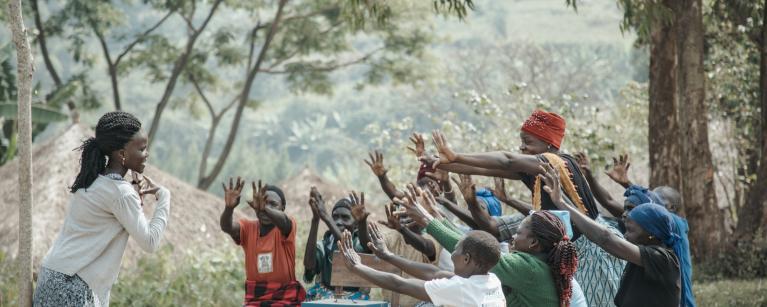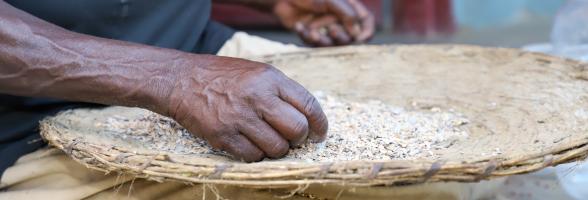CONTEXT
Uganda continues to confront a range of ever-growing, simultaneously occurring humanitarian crises and is one of the largest refugee-hosting countries in the world, with close to 1.5 million refugees living in settlements in refugee-hosting districts including Isingiro and Kisoro two of the poorest districts with poverty incidence of 42 percent, far above the national average of 19.7 percent.
The Karamoja region has a legacy of violent pastoralist conflicts associated with decades of cattle rustling which has caused immeasurable suffering for the people, especially the women and girls.
A rapid assessment report by InterNews in Kisoro district found that women are the main victims of Sexual and Gender-Based Violence (SGBV) and are at risk of exposure to abuse by fellow refugees, figures of authority involved in the refugee response, and the host community.
Needs Assessments and evaluations conducted by various implementing partners working in the refugee response revealed among others that access to protection services for vulnerable groups such as women, girls, and people with disabilities remains limited while experiences of Sexual and Gender-Based Violence (SGBV)are common with women and girls being abused by parents and partners. Many women are widowed and others are sexually assaulted and even killed as they travel long distances in search of water, firewood, charcoal, and food. According to UNHCR Uganda, women and children make up 78% of the total population of newly arrived Congolese refugees in Uganda.
Climate extremes and land degradation threaten livelihoods, food, and social security across Uganda, particularly in the Karamoja subregion which is semi-arid and reliant on community forests. Unsustainable farming practices and excessive fuel wood harvesting undermine the resilience and adaptive capacity of populations in the face of climate change.
Extreme events such as seasonal fluctuations in rainfall, dry season bushfires, droughts, floods, and landslides are increasing in frequency and intensity in Kaabong and Moroto districts. Hunger poses a direct threat to life. As such, it makes the affected households desperate and makes them source for and/or engage in any activities they consider to be a ‘gateway’ to food. This happens for both men and women, boys, and girls.
The situation for women, girls and children is a lot worse, increasing their vulnerability and susceptibility to all forms of abuse, violence including battering, sexual abuse and exploitation, child labour including hazardous work, exposure to violence including within their homes, among other forms. of violence against women and girls.
ABOUT THE PROJECT
Oxfam in Uganda in consortium with National Association of Women’s Organisations in Uganda (NAWOU), African Women and Youth Action for Development (AWYAD) and the Network of Public Interest Lawyers (NETPIL) received funding from UN Women to implement a three-month project.
The project titled Promoting the Leadership, Empowerment, Access, and Protection (LEAP) of Women & Girls affected by Conflict, Severe drought and forced displacement in Uganda is meant to create a gender-responsive environment for refugee and host community women and girls in the districts of Isingiro, Kisoro, Kabong and Moroto.
PROJECT AIM
- To create a gender-responsive environment for refugee and host community women and girls, aligning with international human rights standards.
REACH
- 3250 People (2,750 women, girls, youth, and 500 men and boys including Persons With Disabilities.
OUTCOME AREAS
- Improved positive coping mechanisms for vulnerable refugees, most communities and drought-affected women and girls, men and boys in Uganda.
- Strengthened gender-responsive emergency drought and displacement prevention, response, and recovery interventions through the involvement of women leaders and key actors.
IMPLEMENTING PARTNERS
- National association of women’s organisations in Uganda (NAWOU)
- African Women and Youth Action for Development (AWYAD)
- Network of Public Interest Lawyers (NETPIL)
GEOGRAPHICAL COVERAGE
- Moroto
- Kaabong
- Isingiro
- Kisoro
DONOR
BUDGET
- $290,000
DURATION
- 3 Months

